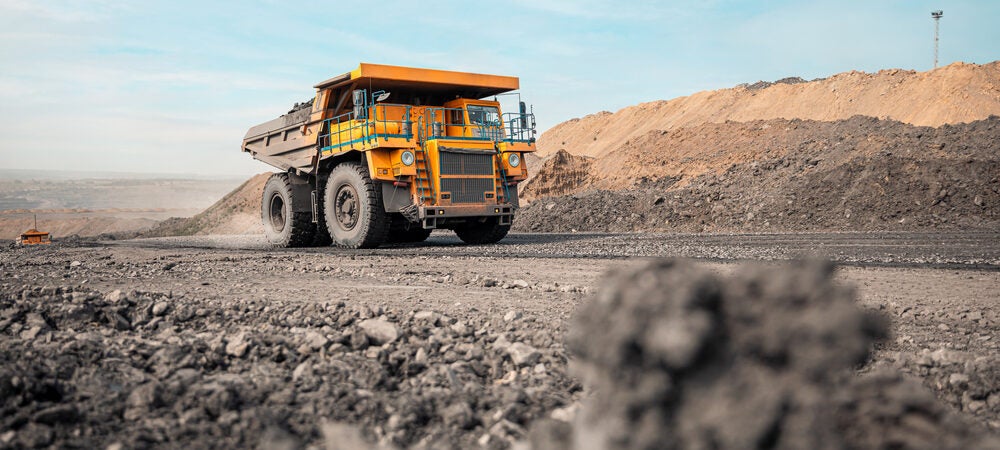The United States is facing a critical mineral crisis that is threatening our national security.
As numerous studies have demonstrated, the United States relies almost entirely on foreign entities for a range of critical minerals — including lithium, cobalt and nickel — that form the technological foundation of a wide array of consumer and military technologies, ranging from electric vehicle batteries to advanced weapon systems. Despite the importance of these minerals to both civilian and military technologies, the U.S produces only a fraction of its minerals supply here in the United States, leaving it open to major disruptions caused by natural disasters, geopolitical conflicts or supply chain failures.
Luckily, a bipartisan effort to secure the United States’ supply of critical materials is underway in Washington. In the past year, Congress has passed or introduced a number of bills to secure the United States’ supply of these critical minerals by boosting our nation’s capacity to acquire and extract them domestically. Although Congress should be applauded for its recent efforts, the truth is the United States won’t be able to produce or stockpile its way out of the current critical mineral crisis.
In order to secure the nation’s critical minerals supply, the United States also needs to increase its efforts to “make-use-recycle” critical materials that are already in circulation and repurpose them for future use — drawing from a set of strategies that some economists and policy experts have begun calling the “circular economy.”
At the core of the circular economy model is the effort to recover still-viable critical materials from existing products and reintegrate them into commerce via a “reverse supply chain,” rather than solely extracting new minerals from mines. Proponents of this approach often cite its ability to prevent environmental degradation and combat climate change by reducing waste and limiting the need for new, carbon-intensive manufacturing and extraction. Importantly, though, the principles of the circular economy will also be crucial to reducing the United States’ dependence on strategic adversaries for critical minerals.
The United States’ dependence on its geostrategic adversaries for critical materials constrains its ability to maneuver strategically and diplomatically. For instance, according to the U.S. Geological Survey, China currently accounts for more than 90 percent of the world’s rare earth processing capacity, while Russia is the largest supplier of palladium — a key mineral for reducing toxic emissions from automobile exhaust — to the United States.
It is not difficult to imagine a scenario in which a strategic competitor could threaten to withhold its supply of critical materials unless the U.S. complied with its demands. Indeed, Japan faced this scenario in 2010, when China cut off rare earth element (REE) exports to Japan over a maritime security dispute, roiling global markets and threatening consumer electronic and hybrid vehicle battery production in Japan.
It is therefore not surprising the U.S. government is reviewing the national security implications of U.S. imports of neodymium magnets — used in a wide range of vehicle components, wind turbines, phones, appliances and power tools — from China, which is the world’s only active processor of these magnets.
Increasing the United States’ efforts to recover and repurpose critical minerals would go a long way toward resolving these vulnerabilities. Let’s look at the numbers.
The United States mined 43,000 tons of rare earth ores in 2021, according to the USGS but exported 45,000 tons primarily to China (including ores from external sources) for processing and re-export back to the U.S. market. A recent peer-reviewed study found that recycling from select consumer goods and recovery from the byproducts of other mining and phosphate processing could yield from two to 11 times the volume of rare earth elements that could be extracted through processing the raw materials.
Although cost, availability and quality are major factors in the success of recycling, the potential is nevertheless there to retrieve up to three-and-a-half times more dysprosium from recycling earbuds than from ores, six times more lanthanum from hybrid batteries, six times more neodymium from spent polishing powders and 11 times more scandium from aluminum and other “red mud” ore processing. This yield could be a significant secure source of critical materials with the acceleration of the circular economy.
Approaching the circular economy from the standpoint of national security will require the international community to reexamine certain policies that, while designed to combat climate change and environmental degradation in the short term, may actually impede the transition to a circular economy and undermine national security efforts. A new proposal under consideration by the Basel Convention, for example, would restrict the trade-in of all end-of-life electronics. This will make it more difficult to extract still-viable critical materials — such as rare earths, lithium, cobalt, indium, nickel, gallium and tantalum found in mobile phones — from end-of-life products and put them back into productive commerce.
The implication is clear: a circular economy is a national security imperative. In tandem with its efforts to boost domestic production of critical materials, Congress should also recognize that building reverse supply chains for critical materials will be essential to securing the United States’ supply of critical minerals.
Ultimately, a circular economy will result not only in a cleaner and more sustainable planet, it will also lead to a safer and more secure homeland.
Adina Renee Adler is deputy executive director of Silverado Policy Accelerator, a Washington-area think tank focused on trade, environmental, and cybersecurity policy. Adler is a former U.S. trade negotiator and has worked in the recycling and commodity manufacturing industries.
To read the full commentary from The Hill, please click here.

